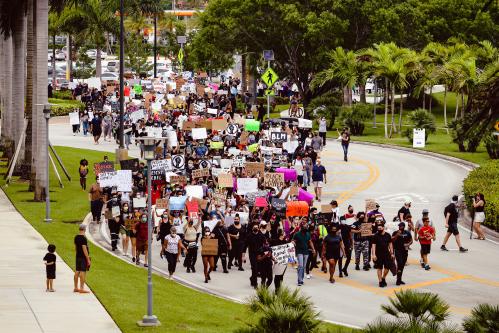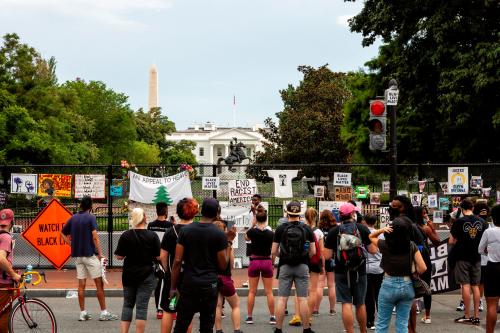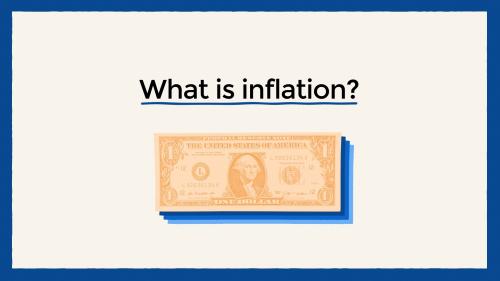Jim Crow laws that prevented Black citizens from voting are clearly racist, as are redlining practices that excluded Black homebuyers from white neighborhoods. But what about laws and regulations that don’t rely on disparate treatment based on race? Can such policies still be racist? Bill Gale explores these questions in his new research, including in a paper titled “Public Finance and Racism.” He is the Arjay and Frances Fearing Miller Chair in Federal Economic Policy, a senior fellow in Economic Studies, and co-director of the Urban-Brookings Tax Policy Center.
Also on this episode, Senior Fellow David Wessel, director of the Hutchins Center on Fiscal and Monetary Policy, addresses President Biden’s renomination of Jay Powell to be chair of the Federal Reserve, his nomination of Lael Brainard to be vice chair, and the big question confronting the Fed: inflation. Listen to this segment also on SoundCloud.
Follow Brookings podcasts here or on iTunes, send feedback email to [email protected], and follow us and tweet us at @policypodcasts on Twitter.
The Brookings Cafeteria is part of the Brookings Podcast Network.







Commentary
PodcastWhen is a public policy racist?
November 26, 2021